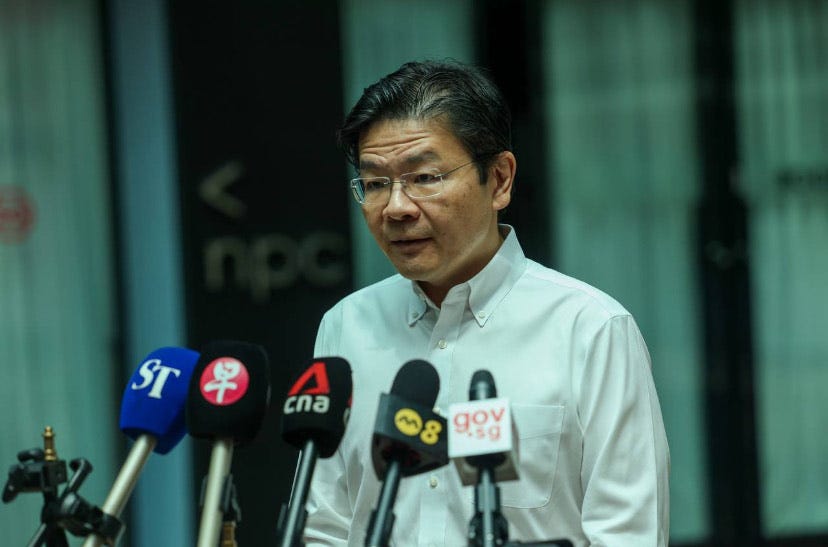How New Singapore Leader Lawrence Wong Could Shape Foreign Policy
Impending power transfer to Lawrence Wong puts focus on Singapore's evolving international outlook amid domestic shifts and contested geopolitical landscape.
The confirmation that Lawrence Wong will become Singapore’s new prime minister next month spotlights what lies ahead for the country’s foreign policy outlook in the coming months and years amid domestic shifts.
WonkCount: 1,413 words (~ 7 minutes)
How New Singapore Leader Lawrence Wong Could Shape Foreign Policy
Background
Wong will not be a stranger to the foreign policy realm when he takes office as Singapore’s fourth prime minister since independence next month. As noted previously on ASEAN Wonk, Singapore’s leadership transition has been years in the making was already one of the notable regional developments to watch in 2024, even though others were also at play including who would become Indonesia’s president. While current premier Lee Hsien Loong confirmed just this week that the handover to Wong would take place on May 15, Wong has already led several foreign trips, including to the United States and China last year amid boosts for ties (see timeline snapshot below)1. Indeed, Lee’s announcement was made just after Wong had made a trip to Europe, where he announced the intent to upgrade ties with both Germany and France2. More generally, apart from his current positions as deputy prime minister and finance minister, Wong has held several previous roles touching on Singapore’s international links. These include portfolios tied to defense and education as well as being chief executive of the Energy Market Authority3.
Key Recent Developments on Singapore Foreign Policy and Ongoing Leadership Transition
The transition takes place during a challenging foreign and domestic context for Singapore. At home, Singapore’s ruling People’s Action Party (PAP) that has governed the country since independence is wrapping up an already-delayed generational transition as it confronts issues ranging from the threat of foreign interference, refreshing its social compact and recent scandals. Speculation has already been intensifying about the date of the country’s next polls, which must be held before November 20254. Abroad, though Singapore remains among the region’s most military advanced and diplomatically active states, its leaders have warned about risks from a fragmented world and have had to manage scrutiny on some of its positions, such as the decision to impose unilateral sanctions on Russia following its invasion of Ukraine or its evolving approach to the Israel-Gaza war5. Wong himself has opined on some of this in key speeches6. Last year, at a conference to mark the centennial of the birth of Singapore’s late founding father Lee Kuan Yew, Wong warned that trends such as bifurcation amid U.S.-China competition meant the external environment would be “less benign and less hospitable for small states like Singapore”7.
Significance
Wong will assume the office next month with a full foreign policy inbox, including management of key relationships and sectors that will be key to monitor (see a table below on areas of note in Singapore’s ties with key countries, along with a Prospects section on what to watch in the coming months more generally).





